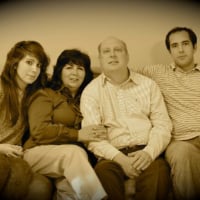TIP - Considering Spelling Variations in your research

Answers
-
Good advice. Only today, I nearly missed out on finding a death record for one of my TUNGATE relatives. I was sure that variants were not used after the mid-1800s, but the elusive death record turned out to be spelled TONGATE.
In future, I must keep to my usual practice of using wildcards - e.g. T*NGATE, which would have helped me find this entry immediately!
0 -
"Why weren't our ancestors consistent? There are two big reasons: 1) The ancestor may not have been literate and 2) the record was created by another person. If the ancestor was unable to read and write, he may not have known how to spell his own name at all. Even if he had memorized the spelling, a literate person recording the information may not have asked. Records we use for research are mostly church records, civil records, wills and census records. These were usually written by a non-family member -- a clergyman, census enumerator, town or county clerk. The recorders may have thought they knew best how to spell a name and [not even bothered] to ask. "
And especially in FamilySearch or other geneaology sites, it's also possible that the person who indexed or otherwise entered the record mistyped the name, or misread it.
This is true in laguages other than English as well. One of my wife's surnames is "Víquez", and her family is from Mexico near Mexico City. We've seen that name spelled as:
- Viquez
- Vigues
- Biquez
- Biques
- Vikez
- Vique
and at least one place where it was written as one of those but indexed as "Vázquez".
0 -
even for literate persons - - spelling consistency was not what it is today . . .
it is not uncommon at all to see a court clerk writing a document and see him spell things inconsistently throughout the doc
0 -
The concept of the "One True Spelling" of names dates to no earlier than the 20th century. Even for regular words, "correct spelling" is a relatively newfangled concept in most languages (English included).
Shakespeare never spelled his own name the same way twice. (That's only a slight exaggeration.)
0

